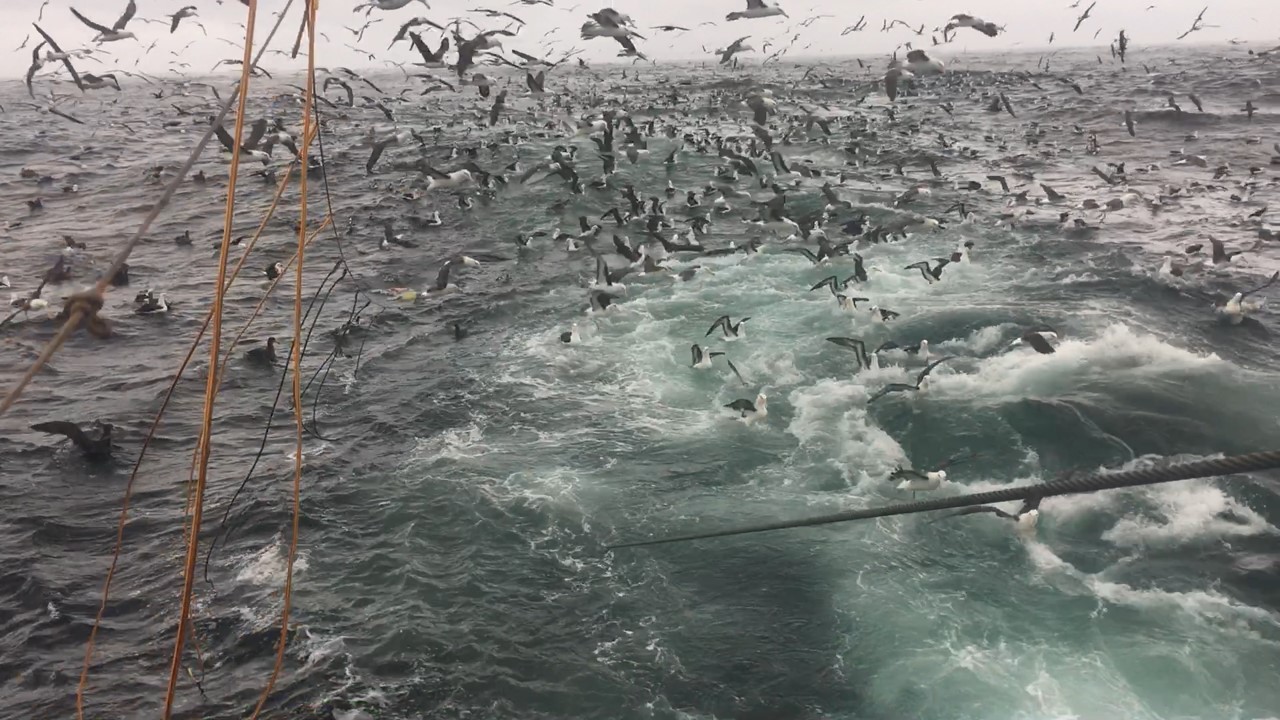
Black-browed Albatrosses accumulate behind a fishing vessel in the South Atlantic
Can Zhou (Texas A&M University, College Station, USA) and Nigel Brothers have published in the ICES Journal of Marine Science on assessing seabird bycatch by observing pre-capture interactions from pelagic longline fishing vessels.
“Fishery bycatch poses a serious threat to seabird populations globally. Traditional haul-only post-capture observations are inadequate and inefficient to document seabird bycatch due to the substantial bycatch loss known to occur. Pre-capture observations offer an alternative by documenting seabird interactions leading up to captures. Based on the long-term large-scale dedicated field observations, this study revealed significant risk factors for the pre-capture stages of the seabird bycatch process in pelagic longline fisheries using Bayesian methods. Rough sea conditions were found to correlate with more seabirds following fishing vessels. Species identity, density effect, inter-species effect, and sea condition were found to significantly affect how frequently seabirds aggregated around a fishing vessel engage in bait-taking interactions. Intra-species competition was found to be the dominant type of density effect. Moreover, a web of inter-species interactions was identified to facilitate the bait-taking of superior competitors at the expense of inferior ones. The findings of this study are relevant to fishery managers in updating current data collection protocols to alleviate data issues caused by bycatch loss, to conservation biologists in quantifying bycatch risks for susceptible seabird populations, and in aiding the design and evaluation of bycatch mitigation measures.”
With thanks to Nigel Brothers.
Reference:
Zhou, C. & Brothers, N. 2021. Interaction frequency of seabirds with longline fisheries: risk factors and implications for management. ICES Journal of Marine Science doi.org/10.1093/icesjms/fsab014.

 Español
Español  English
English  Français
Français